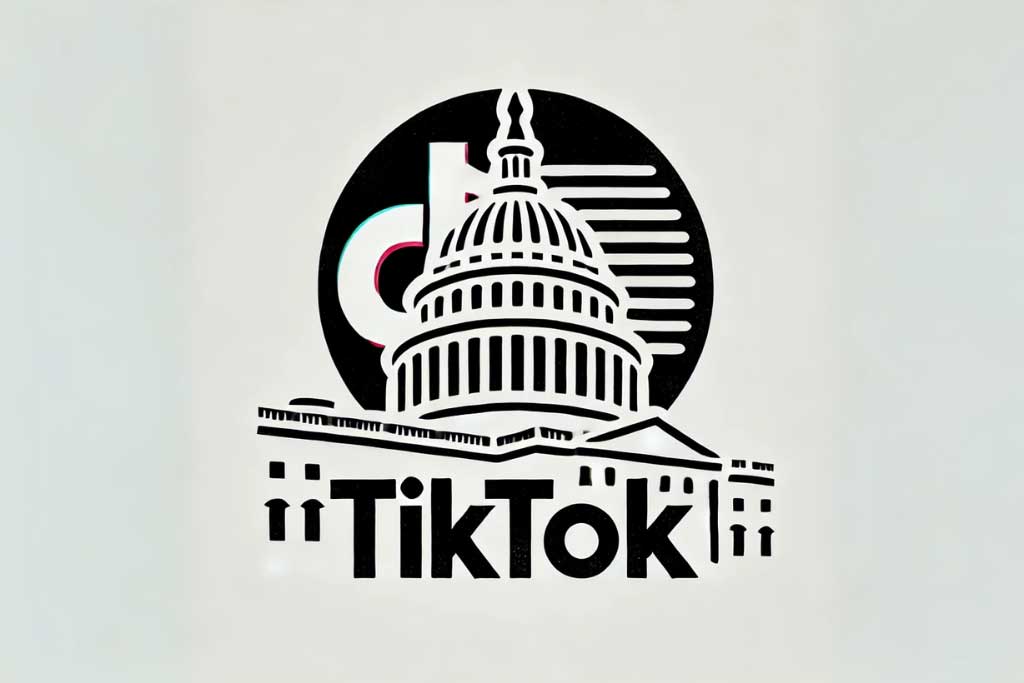New York, NY – January 16, 2025 TikTok, the wildly popular short-form video app boasting over 170 million users in the United States, is on the brink of an unprecedented shutdown. The looming TikTok ban follows a federal law that mandates Chinese parent ByteDance to divest from the app by January 19, 2025. The measure, according to lawmakers, is necessary to safeguard national security by reducing potential risks of American users sharing data and surveillance with the Chinese government. Despite the heated debates and international backlash, the deadline for compliance is fast approaching, leaving TikTok, its creators, and its vast user base grappling with uncertainty.
Legal and Political Landscape
The federal mandate, part of a broader bipartisan effort to curb Chinese influence on U.S. technology and data security, has drawn attention from all corners. In April the fate of TikTok was sealed in law as President Joe Biden signed the Protecting Americans from Foreign Adversary Controlled Applications Act. This act gave ByteDance 270 days to divest TikTok or see it banned. Last week, the US Supreme Court heard oral arguments on the legality of the law, and early indicators suggest the justices may uphold it. The Biden administration initially spearheaded efforts to address concerns about TikTok’s data practices, citing fears that the app could be leveraged by the Chinese Communist Party for espionage or propaganda purposes.
President-elect Donald Trump, who has previously leveraged TikTok for his political campaigns, has signaled potential efforts to delay or halt the ban by way of executive order. His national security adviser, Rep. Mike Waltz, hinted that the incoming administration is considering avenues to “preserve” the platform while addressing security concerns. With the inauguration just days away, questions remain about whether these efforts will materialize in time to avert the shutdown. The broader implications of this decision could reshape the relationship between the tech industry and geopolitics for years to come.
Some lawmakers are urging President Biden and the U.S Supreme Court for a last-minute reprieve and to delay the federal ban, claiming that the law comes at the expense of free speech for millions of U.S users.
TikTok’s Preemptive Shutdown Plans
As ByteDance faces mounting pressure to comply with the divestiture order or risk a nationwide ban, TikTok has announced that it will cease its U.S. operations on Sunday, January 19, 2025. The TikTok app would be illegal for distribution through the Apple App Store and According to sources familiar with the matter, the app’s servers will redirect users to a web portal where they can download a record of their personal information, including saved videos and account data. The decision to preemptively shut down operations is reportedly intended to shield service providers, such as Apple and Google, from potential legal exposure.
“This was not a decision we made lightly,” a TikTok spokesperson said. “We have worked tirelessly to find a resolution that satisfies U.S. authorities and ensures the safety and privacy of our users. Unfortunately, with the deadline imminent and divestiture talks stalled, we have no choice but to proceed with a temporary suspension of operations.”
A Digital Economy in Flux
The impending ban has sent shockwaves through the digital economy, where TikTok has been a dominant force since its global rise to fame in 2018. The platform has transformed how individuals consume content, reshaped marketing strategies, and created an entirely new class of influencers. Analysts predict that TikTok’s U.S. ad revenue, which totaled $11 billion in 2024, could be redistributed among competitors like Meta (Facebook), Alphabet (Google), and Snap.
For other platforms, TikTok’s loss could be their gain. It’s important to recognize that no platform currently offers the same level of creativity, algorithmic precision, or community engagement that TikTok does. The gap it leaves behind will be difficult to fill.
Creators and Businesses Scramble
The ban’s immediate impact on creators and small businesses reliant on TikTok for income cannot be overstated. From dance trends and comedy sketches to product launches and educational content, TikTok has been a cultural and economic phenomenon. Many creators have built lucrative careers through brand partnerships and sponsored content on the platform. Small businesses, meanwhile, have leaned on TikTok’s algorithm to reach highly targeted audiences at a fraction of traditional advertising costs.
Content creators are now urging their followers to join them on alternative platforms like Instagram Reels, YouTube Shorts, and Snapchat Spotlight. However, these platforms often lack the viral potential and community-driven nature that TikTok users have come to expect.
Latest TikTok Rumors
As the deadline approaches, speculation about TikTok’s potential last-minute moves has intensified. Some insiders suggest ByteDance may explore creative restructuring options, such as spinning off TikTok’s U.S. operations into a separate, fully American-owned entity. Rumors have also swirled about Elon Musk buying TikTok as part of his broader efforts to expand into social media, though no concrete steps have been confirmed. Meanwhile, reports suggest that Donald Trump’s team is considering leveraging the app’s shutdown as a political talking point to rally support for his incoming administration.
TikTok, for its part, has issued a statement dismissing these claims as speculative and reiterating its focus on resolving security concerns through legitimate channels. Unverified reports claim that some creators with massive followings have been offered incentives to stay active on the social media app until the final moments, fueling conspiracy theories about TikTok’s endgame. Despite the rumors, no official announcements have been made, leaving users and analysts guessing about the company’s next steps. New reports from Reuters suggest that TikTok will display a pop-up message shortly after the U.S ban goes into effect, and according to TikTok lawyer, Noel Francisco the app will “go dark” across the U.S. if the law goes through.
According to the Washington Post, there are several parties who have expressed interest in buying the platform amid the looming ban.
International Backlash and Geopolitical Ramifications
The impending ban has drawn sharp criticism from Chinese officials, who have labeled the U.S. law as “unfair” and a violation of international competition norms. The Chinese foreign ministry has called for a reconsideration of the legislation, arguing that the U.S. has failed to present concrete evidence supporting its claims of security risks.
In a statement, the ministry said, “The United States is using national security as a pretext to suppress foreign companies. Such actions not only harm bilateral relations but also set a dangerous precedent for global economic cooperation.”
The TikTok saga has also intensified debates over internet governance and digital sovereignty. As countries worldwide grapple with questions about data privacy and platform regulation, the U.S. ban on TikTok could inspire similar actions in other nations, further fragmenting the digital landscape.
What Comes Next?
As the January 19 deadline looms, the future of TikTok in the U.S. hangs in the balance. Legal experts note that the Supreme Court’s ruling and potential executive actions could shape the outcome, but time is running out. Meanwhile, ByteDance’s efforts to divest its U.S. operations have reportedly hit roadblocks due to valuation disputes and geopolitical tensions.
“Beijing might well treat this as a pretty substantial propaganda victory if the U.S. government forces a sale or actually bans TikTok.,” said Daniel Wang, a tech analyst and expert on China tech. “Chinese state media and government spokespeople have made it clear that this is very unwelcome. China feels that ByteDance is a very successful company that is being bullied in America because it is Chinese. ”
A Cultural and Economic Void
Beyond the financial implications, TikTok’s absence would leave a cultural void. The platform has been instrumental in shaping trends, amplifying underrepresented voices, and fostering global connections. It has also served as a launchpad for viral movements, from dance challenges to social justice campaigns.
Notably, many US TikTok users have since moved on to Chinese app RedNote in recent days. Although the ban of Chinese apps may continue after this precedent.
While TikTok’s potential ban marks a significant moment in the history of social media, it also raises broader questions about the future of global tech policy, digital rights, and the balance between security and innovation. As creators and users brace for a post-TikTok reality, the world will be watching to see how this chapter unfolds—and what it means for the future of the digital age.
Related:


